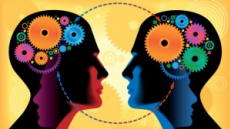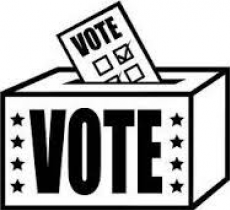
Email: ZYVC057@live.rhul.ac.uk
Total Article : 213
About Me:I'm a graduate student studying International Criminal Law and first started writing for King's News almost 4 years ago! My hobbies include reading, travelling and charity work. I cover many categories but my favourite articles to write are about mysteries of the ancient world, interesting places to visit, the Italian language and animals!

Politics is a wide and encompassing topic involving anything related to the government and policies. One area of politics which has drastically become ever more important is political behaviour as it focuses mainly on citizens’ attitudes and tendencies towards politics. It answers questions like ‘why do people vote?’ or ‘does our electoral system shape how many parties will run for elections?’ which is why political behaviour researchers are being constantly called to make predictions on votes during elections. Countries worldwide are witnessing a drastic decline in voters’ participation during elections and in return various schools of thought have emerged to attempt to provide an explanation.
The Columbia school of political behaviour asserts that different social groups have different needs and interests. Whilst this could be decent explanation for voter decline many found it unsatisfactory as many people may not belong to just one social group - for example a man may be linked to one party due to his view on the economy and another due to environmental issues. Another criticism is that not everyone that belongs to a certain group will have the same needs, even within a group the possibility of harmony is bleak.
Anthony Downs, the American economist, put forward what is known as the rational choice theory in 1957. The theory has its roots in economics and provides us with an explanation of political participation on an individual level. The underlining idea is that all humans think rationally, therefore before making a decision we weigh out the pros and cons. The same rationale can be applied when explaining voter turnout: each voter will first the benefits of voting, the perceived probability of voting and the cost of voting before casting a decision. Therefore, in this cost-benefit analysis the rewards of voting (R ) are a function of the benefits of voting (B) , the perceived probability of casting a decisive vote (P) and the cost of voting (C), which may include the time and travel expenses of voting. By using the rational choice theory, citizens act in their own interest maximising their gains and minimising their losses.

This theory seems quite suitable and I’m sure we have all made similar considerations before voting, however an issue does arise from this theory. It is known as the paradox of the rational choice theory, or better yet ‘the paradox that ate the rational choice theory’, where paradox indicates that the theory somehow contradicts itself. The probability a single individual has of casting a decisive vote, the vote that will determine which party wins the elections, is very bleak. In fact in the USA a citizen has a 1 in 60milion chance to cast the decisive vote in the presidential elections. With this in mind, now it seems that the perceived probability of casting a decisive vote and the cost of voting both outweigh the benefits of voting. However, if everyone lived by this theory nobody would vote and in reality thousands turn up to cast their vote in each election.
So where does this leave the rational choice theory? Anthony Down attempted to expand the original rational choice model to try to overcome the paradox and formulated the theory in economic, political and individual terms. Riker and Ordeshook (1968) also added that voters may be driven by values. These values would include their sense of civic duty and the satisfaction we get from voting, which goes against Down’s initial theory of humans being driven only by economic self-interest. Down’s theory, nonetheless, is overwhelming dominant in voting studies and further goes on to explain how parties, just like voters, are rational actors and the electoral arena is in reality a market place of supply (the parties) and demand (the voters). The rational choice theory deeply considers why citizens vote and explains a lot with relatively little. If you were deciding whether to vote or not would you base your decision on what is most beneficial to you or would you vote based on your sense of citizenship? If you are unsure of the answer don’t fret, the academic realm of political behaviourists are also still looking for an answer to this timeless question!
Image 1: http://www.togetherwepass.co.za/wp-content/uploads/2014/05/PLC2601-Understanding-Political-Behaviour-and-Participation-300x168.jpg
Image 2: http://images.sodahead.com/polls/001297613/voting-non-citizens-28030818922_xlarge.jpeg

0 Comment:
Be the first one to comment on this article.